NECO Syllabus for Computer Studies – Are you getting ready to sit for Computer Studies in the upcoming NECO? Do you have the proper guide to study with to make your chances of passing the examination easier? The National Examination Council has released the syllabus for Computer Science. This is a roadmap to guide all candidates who have registered and will be sitting for the examination.
The NECO Syllabus For Computer Studies is an extensive document that outlines the building blocks of programming with introductions to logic circuits, algorithms, and flowcharts, and even offers a glimpse into programming languages like BASIC.
This ensures that by the end of your studies, you will not only understand what a computer is but also how to use it responsibly and be aware of its vast potential in various career paths.
Outline of NECO Syllabus for Computer Science
Here’s a clear and well-structured outline of the NECO Computer Studies syllabus, organized in table format for easy understanding:
| Component | Topics Covered | Skills / Objectives | Assessment Format |
|---|---|---|---|
| Basic Concepts & Evolution | History of computing, types of computing devices, number systems, generations of computers | Understand historical development, distinguish between types of devices and generations, convert number systems | Paper I – multiple-choice and theory questions |
| Computer Hardware | Input devices (keyboard, mouse, scanner, light pen), output devices (monitor, printer, speaker, plotter), CPU (ALU, control unit), memory, storage units | Identify, describe, and compare hardware components; construct truth tables; understand memory/storage hierarchy | Paper I – objective and short-answer questions |
| Logic Circuits | Standard logic gates (AND, OR, NOT), NAND, NOR, XOR; symbols and truth tables; simple comparator circuits | Build and interpret truth tables; explain gate functions and circuits | Paper I – theory questions |
| Data & Information | Data vs. information, types of data, digitization methods, data handling processes | Differentiate data from information, handle and process data appropriately | Paper I – objective and theory questions |
| Software & Applications | Operating systems, word processing, spreadsheets, databases, presentation tools, graphics, web applications | Use key applications; create, edit, format, save, and manage files; understand UI types and OS functions | Paper I (theory) & Paper II (practical exercises) |
| Information Processing & Transmission | Steps in info processing, modes of transmission (visual, audio, audio-visual), networking (LAN, WAN, MAN), Internet skills, and security | Explain processing workflows, transmission modes, and network types; apply safe internet practices | Paper I & II – theory/practical tasks |
| Problem-Solving & File Management | File organization, database systems, relational DB concepts, keys, queries, forms, reports, data security, backups, and recovery | Design & manipulate databases; organize and secure files; ensure data integrity and recovery | Paper II – practical tasks & theory questions |
| Maintenance, Ethics & Safety | Hardware/software maintenance, virus types and protection, computer ethics, lab rules, safe practices (ergonomics, cleanliness) | Perform maintenance; prevent and remove malware; adhere to ethical and safe computing behaviors | Paper I & II – theory and practical assessment |
| Career Awareness | Careers in ICT, professional bodies, roles, and responsibilities in computing professions | Explore ICT career paths; understand professional standards | Paper I – theory questions |
Examination Structure
- Paper I: Multiple-choice and short-answer theory questions across all foundational topics.
- Paper II: Practical and hands-on assessments—software usage, programming logic, file/database operations, and ethical/security scenarios—along with deeper theory and essay-style questions.
Recommended Textbooks
Here are some recommended textbooks for NECO Computer Studies, chosen for their clarity, relevance to the syllabus, and accessibility for secondary school students preparing for the exam:
- New Approach to Computer Studies for Senior Secondary Schools by I. O. Akubugwo.
- Comprehensive Computer Education for Schools and Colleges by J. C. Okezie.
- Information and Communication Technology for Senior Secondary Schools by NERDC.
- Introduction to BASIC Programming, or any beginner-friendly guide to Python.
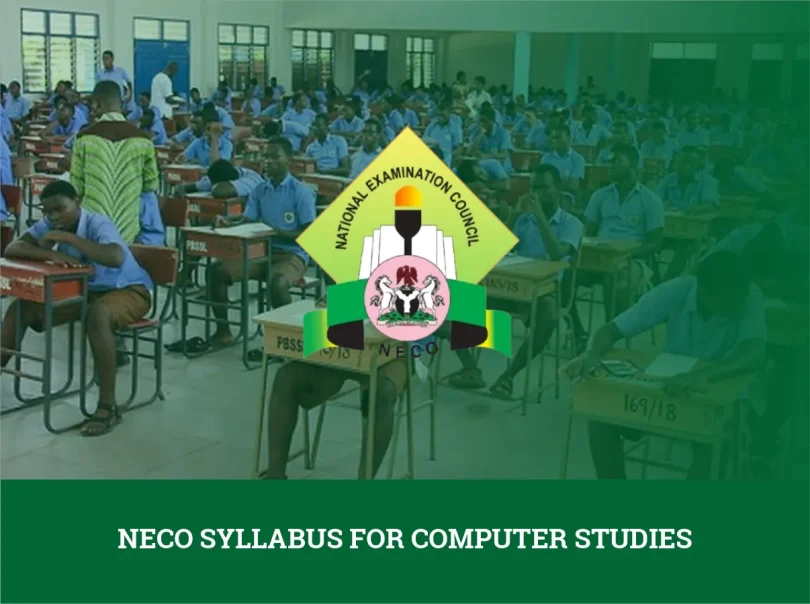
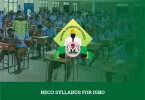
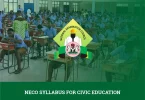
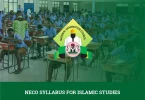


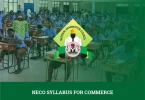
Leave a Comment